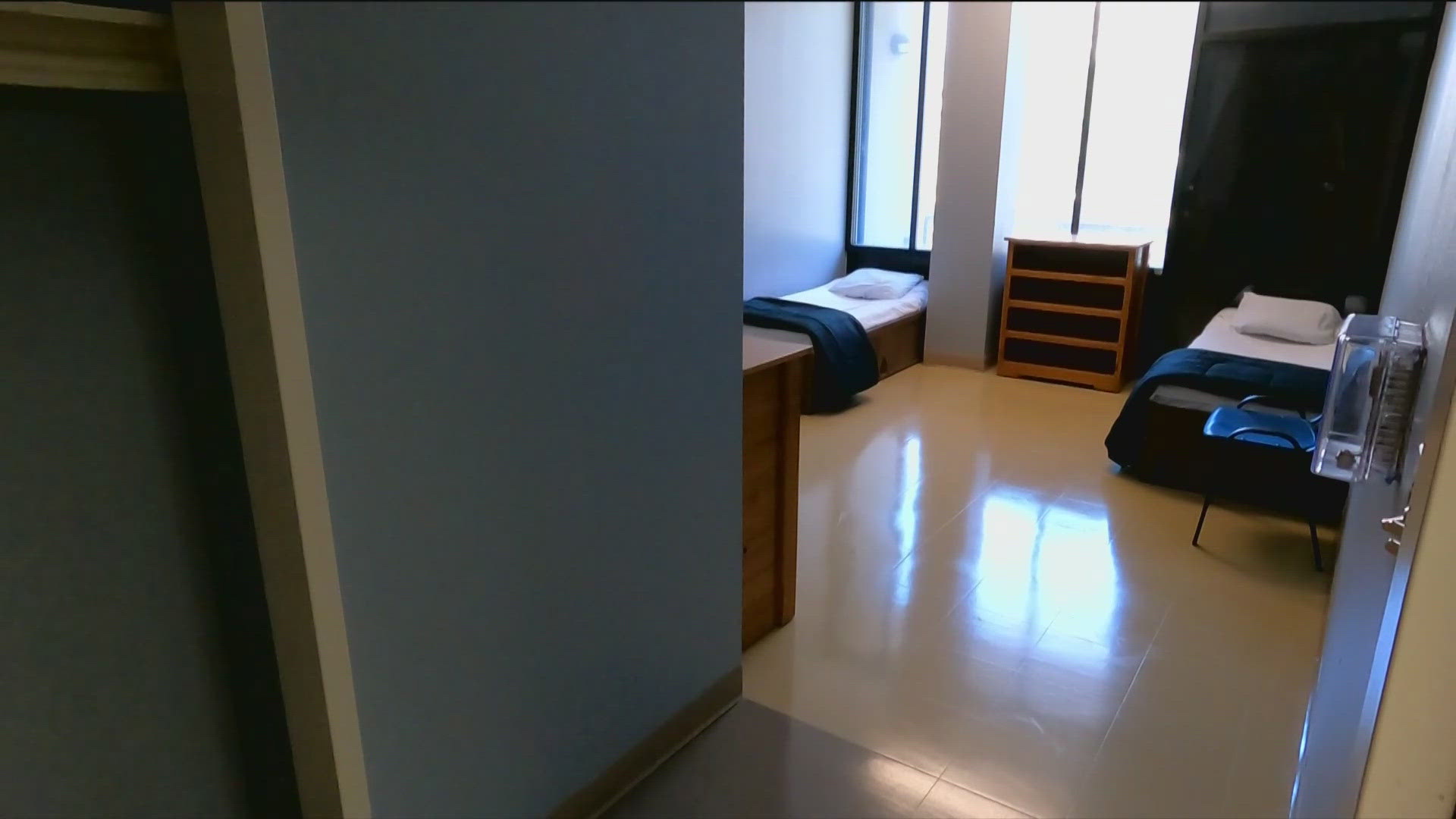AUSTIN, Texas — A new therapeutic diversion program is now up and running in Travis County.
The Crisis Care Diversion pilot program’s goal is to give people experiencing a mental health crisis a place to go and a place to stay, instead of going to jail.
The $6 million project– funded by the city, county, and Central Health in equal parts– is supposed to run for the next three years, offering nonstop psychiatric emergency services, and a 25-bed residential therapeutic facility that people can stay in for up to 90 days.
Travis County Judge Andy Brown said the inspiration behind it follows recommendations from the Travis County Mental Health Project Report created to improve mental health crisis response in the community.
“We've got about 2,500 people in the jail today and depending on how you measure it," Brown said. "[About] 70% of the people in there would not be in jail if they didn't have unmet mental health needs."
Brown said the Travis County Jail is the county’s largest mental health facility right now and that needs to change. Daniel Smith, the Director of Inmate Mental Health at the Travis County Sheriff’s Office, said they treat over 900 people with serious mental illnesses, and over two-thirds of inmates have substance dependency problems.
“We know that 50% of those with the highest mental health needs, who are in jail on just a misdemeanor charge are unhoused, and it is not uncommon for us to see a person cycle in and out of jail six to eight times, or even up to 10 times a year,” Smith said.
According to Smith, officers are trained and able to recognize when someone needs treatment instead of jail time and said jail isn't the place to get better.
“But the only alternative, in the past, has been to take them to the jail where they could receive treatment,” Smith said.
Deontre Gardner, a peer support specialist at Integral Care said he understands how difficult it can sometimes be to access care in the community. He said he experienced homelessness for two years and that it took him a long time to navigate the services available, but many places were limited in what they could offer.
Gardner said he also struggled with feeling like he deserved help during that time. He also said the combination of one's trauma, mental health problems, and harsh living conditions can largely affect behavior.
“Individuals that are maybe symptomatic, or maybe they are just not doing well, and they present a certain way that could be perceived as criminal,” Gardner said. “It's very easy for an individual who's unhoused and is struggling with mental illness to be put in a situation where they get incarcerated.”
Smith said that can start to clog up the justice system, but that the new diversion pilot program will be a step in the right direction on breaking the cycle and offering people a more permanent solution.
The program will work in two parts. First is the Psychiatric Emergency Services, or PES, which accepts people experiencing a mental health crisis at their 24/7, walk-in urgent care facility on Airport Boulevard. If they need more in-depth care, that's where the Therapeutic Diversion Program, or TDP, is offered.
Brown said they’re trying to create a new standard of mental health treatment, and that this is getting to the root of the mental health crisis.
“Investing in care rather than incarceration, not only uplifts those in crisis, but it also makes our entire community safer,” Brown said.
Brown wants to keep expanding their services and the types of treatment they offer. They have plans for a bigger diversion center in the future.
Meanwhile, Travis County already has an existing diversion program. The Judge Guy Herman Center for Mental Crisis Care diverts those in emergency detention from emergency rooms and offers short-term psychiatric crisis care, among other services.

